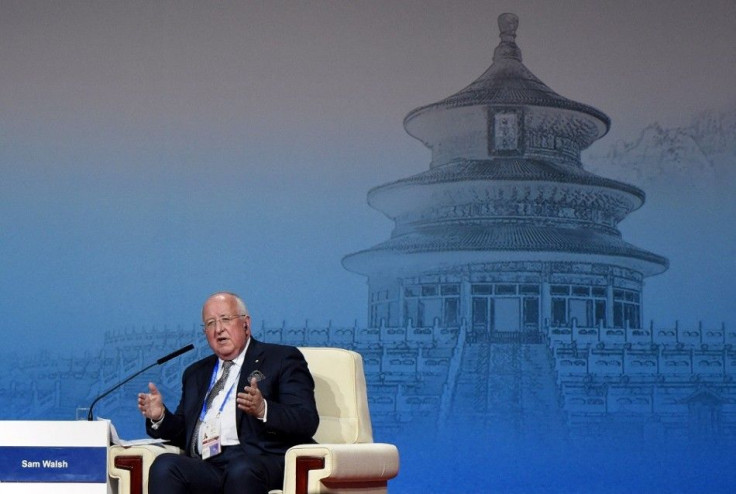Despite Decline In Iron Ore Prices, Rio Tinto To Keep 2014 Output Target

When mining giant Rio Tinto (ASX: RIO) holds it stockholders annual meeting in February 2015, the firm is hopeful it could bring a smile to shareholders on hearing news of higher dividends when it announced full-year results. The confidence comes from higher revenue due to sticking to plans to boost output despite lower iron ore prices in the international market.
Rio is expected to increase its annual output to 360 million tonnes from 290 million, up by 9 percent, making it the second-largest global producer of iron ore after Vale of Brazil, while BHP Billiton (ASX: BHP) follows Rio.
Rio Chief Executive Sam Walsh also said that the miner has no intention to reduce its 2015 capital spending target of $8 billion because of its optimistic outlook even if the price of the key steelmaking ingredient hit a five-year low of $75 per tonne, down 40 percent from the high of $160 in February 2013.
YouTube/Eureka Report
But the decline has caused Rio's shareprice to go down 10 percent in 2014.
Explaining his confidence, Walsh said, quoted by Reuters, "Between me and the current iron ore price there is tier two, tier three and their four (producers). We have positioned our business to be the lowest-cost producer in the world, so I don't think I'll be losing sleep about our iron ore business."
The miner logged a production cost of $20.40 a tonne for the first six months of 2014, which is the lowest in the industry.
He explained to the Wall Street Journal that Rio's output boost plan was made five years ago to debunk speculations that the firm is colluding with other major iron ore producers to bring down the price of the commodity, which accounts for 92 percent of its revenue.
In response to WA Premier Colin Barnett's warning the major iron ore producer are risking attracting regulatory attention from the World Trade Organisation and European trade officials due to oversupply, Walsh replied, "The projects were fully approved by Premier Barnett, as minister for state development. At the time, his government thought the projects were a good initiative."





















